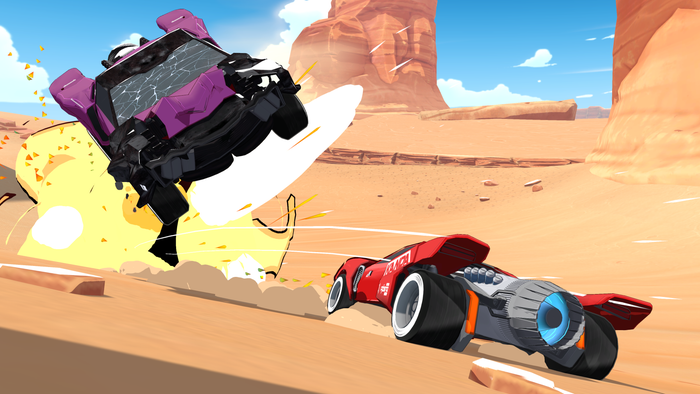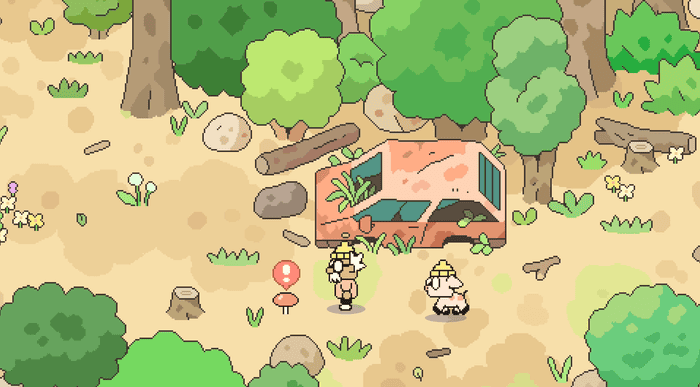Trending
Opinion: How will Project 2025 impact game developers?
The Heritage Foundation's manifesto for the possible next administration could do great harm to many, including large portions of the game development community.

The world of video game events has gone through a massive upheaval since the COVID-19 pandemic began in 2020. Events like Game Developers Conference (our sibling organization) and Gamescom have bounced back with thousands of attendees, but poor strategy and a floundering mission statement led to the death of E3, once a major marketing bonanza for the video game world.
ReedPoP's PAX conventions have hummed along at a brisk pace, but we've noticed large publishers aren't leaning on them as heavily for big marketing bursts. The unfilled space leaves room for indie and mid-sized developers to swoop in to market their projects, but it seems the events' major focus on gathering great communities (often around various microcelebrities) is outshining the allure of an expo hall filled with the hottest games.
But developers shouldn't look at these shifts with doom and gloom—consumer spending on events exploded in 2023, with concerts and music festivals leading the way. The question is this: what can the game industry do to reinvigorate live events as a major means of games marketing?
In late 2023, Day of the Devs organizers Double Fine and iam8bit announced they were taking the free, indie-focused event on the road, with dual shows bouncing up and down the California coast between Los Angeles and San Francisco. Its 2023 showcase included a fantastic lineup of eye-catching games that may have struggled to stand out in a space like E3 or Gamescom, and a second major showcase means more developers can connect with its growing roster of attendees.
What lessons should the industry take from its expansion? Head curator Greg Rice explained to us that the show's organizers have two major goals in mind: making the event space as pleasant as possible for checking out games, and making music festival-inspired experiences that make attendees want to hoof it to the show floor.
Because Double Fine and iam8bit aren't events-first companies, Day of the Devs doesn't have the same profit incentives as other events—something to keep in mind when looking at how other events operate.
Rice explained that the free event's finances are covered by sponsorships, which covers not just the costs of event space but also basic booth assembly. The organizers source all of the technical hardware and keep banner printing in-house to help reduce the costs of what would normally be hundreds or thousands of dollars to stand up a booth at a larger event. They also bring on a video production team for the digital showcases to optimize trailers and complementary interviews for the broadcast.

That shift in profit incentives has something of a downstream effect on game curation for the expo floor itself. Companies that need to book back-to-back booths every year put developers so close together that exhibitors need to go as big and loud as possible to grab eyeballs on a crowded floor. "A lot of shows [attract] games that are going to show really well on the floor," Rice observed, pointing to multiplayer games or other "high energy" titles. "Those are always going to draw crowds if they're in a loud, crowded venue space.
Since Day of the Devs can afford to space out booths, the event can feel less crowded—even with approximately 10,000 attendees filling out the San Francisco venue at its peak—and space can be carved out for developers with quiet, artistic games like Echo of the Waves and Loose Leaf. Rice said that when he's wandering the show and asking attendees what their favorite games were, titles like that equal consideration with more vibrant games like Resistor or Crowsworn.
"I think people come to Day of the Devs because they like how much variety there is on the show floor," he said. "There's kind of something for everybody."
Over the last decade, the music festival industry has evolved from localized showcases to multi-million dollar events driven by celebrity performers and shifts in how people spend money on music. A 2019 analysis by Time Magazine noted that a consumer shift toward events and experiences over merchandise has made festivals a bountiful business for performers and corporations.
Joining a festival lineup and pocketing the high-dollar fees that come with it means artists can focus on attending the event rather than powering through long tours made profitable by merchandise. (We shouldn't undersell the touring concert model however—artists like Beyoncé and Taylor Swift made headlines in 2023 for the staggering amount of revenue they brought in for themselves and local economies).
It's the experiential power of music festivals (and film festivals, especially horror-themed ones) that has caught Rice's eye as a curator. He noted that the model hasn't made a major jump over to the world of video game events yet, with the conference and convention models still keeping an iron grip on the industry.
That's one challenge game events face—the center of the show is an array of commercial products that you'll eventually be able to play at home. In the industry's earlier days the idea of checking out a high-profile game early held lots of appeal, but now "Early Access" is a business model targeting players through the digital world.

With that in mind, should developers heading to these events be cooking up unique content that wouldn't be available when their game is released? That's not a simple proposition—the industry is filled with horror stories about how E3 demos drastically cut into much-needed development time and the idea of investing in curated game content that can't be reused is likely to make developers balk.
But Rice says there's still something to the idea. "We want to have something that can only be played at Day of the Devs," he noted. "We have a long history of working with alternative control games, having interesting projection art and things like that." He explained that the organizers will lean into the live music angle of festivals too, with performances by talented composers. The goal is to "create a vibe" and get people out of their houses.
That vibe doesn't just have to be video game-adjacent content, it can be custom game modes too. "One of the coolest things we did is we've shown Gang Beasts with a 30-player Royal Rumble mode that never made it to release," he recalled.
Because the mode was only ever displayed at events, developers Boneloaf and Rocket Science didn't have to optimize the game for all machines everywhere—just the box it was running on.
There is still one challenge with any attempt to revitalize the game event industry: without major players like Sony, Microsoft, or Nintendo (who've all made clear they'll run their own events to market their games and platforms thank you very much), the bulk of the game-playing public may have little interest in checking out the video game equivalent of *checks spreadsheet* The...Governor's Ball Music Festival?
Under that direct comparison, it almost seems like organizers would be paying the platform holders to show up, an idea that would get me laughed out of any serious pitch room.
But Rice is onto something—there's untapped potential in building game events that can properly host a wide variety of unique games that can be the centerpiece of an event.
The only question is: who will be the one to crack that code for the rest of the industry?
Game Developer and Game Developers Conference are sibling organizations under Informa Tech.
You May Also Like